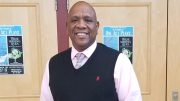Oct. 5 Public Meeting: EPA proposes to add Lower Neponset River to Superfund National Priorities List
Virtual Public Meeting Scheduled on Oct. 5
Contact Information: David Deegan, (617) 918-1017, [email protected]
BOSTON (Sept. 8, 2021) – The U.S. Environmental Protection Agency (EPA) has formally proposed to add a 3.7 mile stretch of the Lower Neponset River to the Superfund National Priorities List (NPL). EPA is taking this action in response to a request from the Massachusetts Department of Environmental Protection (MassDEP). EPA will hold a virtual public meeting for local residents and other interested parties on Tuesday October 5.
The National Priorities List (NPL) is a list of sites that EPA determines require further detailed investigation and potential cleanup under the Comprehensive Environmental Response, Compensation and Liability Act (CERCLA), also known as Superfund. Sites formally added to the NPL are the subject of detailed investigation and cleanup when warranted. Once a site is added to the NPL, it is eligible to receive federal Superfund resources for comprehensive cleanup, including funding and expertise/staffing.
“EPA recognizes that no community deserves to have contaminated sites near where they live, work, pray, and go to school. By adding sites to the Superfund NPL, we are helping to ensure that more communities living near the nation’s most serious uncontrolled or abandoned releases of contamination have the protection they deserve,” said EPA Administrator Michael S. Regan. “The Biden-Harris Administration is committed to increasing funding and working with Congress on the bipartisan infrastructure deal to provide the Superfund Program with the resources it needs to address a backlog of sites awaiting cleanup, as well as additional sites in need of cleanup.”
“EPA continues to protect public health and the environment in communities where industrial activities have left behind a legacy of contamination,” said EPA New England Acting Regional Administrator Deborah Szaro. “By proposing to add the Lower Neponset River site to Superfund, EPA is taking concrete steps to address a legacy of contamination in this urban river that will lead to a cleaner and healthier environment for nearby citizens.”
“The Baker-Polito Administration continues to prioritize returning the Lower Neponset River back to a healthy state and ensuring that it remains a recreational and environmental resource for years to come,” said Governor Charlie Baker. “We are eager to see the cleanup and restoration of the waterbody, which flows through a portion of Milton, and the Environmental Justice communities of Dorchester, Mattapan and Hyde Park.”
The Lower Neponset River site is identified as the 3.7-mile stretch of the Neponset River from the point where it merges with Mother Brook, a branch of the Neponset River located upstream of Dana Avenue in Hyde Park, extending downstream to the Walter Baker Dam located upstream of Adams Street, in Dorchester and Milton, Mass. Based on preliminary studies, this portion of the river contains sediment contaminated with elevated levels of polychlorinated biphenyls (PCBs). The Lower Neponset River channel ranges from approximately 40 to 300 feet wide and comprises an estimated 40 acres within or bordering the City of Boston (Hyde Park, Mattapan, and Dorchester sections) and the Town of Milton, Mass.
The site is bordered by residential, commercial, industrial, and public parcels of land, including the Neponset River Greenway. Historically, numerous mills were established along this portion of the Neponset River in the neighborhoods of Dorchester, Milton, Hyde Park, and Mattapan, initially utilizing dams to generate power to turn mill grinding wheels and later to operate large industrial mills. These mills and other industrial facilities in the area may have contributed to the river contamination.
With this Superfund NPL update, the Biden-Harris Administration is demonstrating a commitment to updating the NPL twice a year. By pledging to add sites more regularly to the NPL, EPA is taking action to protect the health of communities across the country while cleaning up and returning blighted properties to safe and productive reuse in areas where environmental cleanup and jobs are needed most.
The Lower Neponset River site is among 13 sites in the United States and Territories proposed for addition to the NPL today. EPA also today formally added four sites in the U.S. to the NPL today.
Background
The NPL includes the nation’s most serious uncontrolled or abandoned releases of contamination. The list serves as the basis for prioritizing EPA Superfund cleanup funding and enforcement actions. Only releases at sites included on the NPL are eligible to receive federal funding for long-term, permanent cleanup.
EPA proposes sites to the NPL based on a scientific determination of risks to people and the environment, consistent with the Comprehensive Environmental Response, Compensation, and Liability Act and the National Oil and Hazardous Substances Pollution Contingency Plan.
Superfund cleanups provide health and economic benefits to communities. The program is credited for significant reductions in both birth defects and blood-lead levels among children living near sites, and research has shown residential property values increase up to 24 percent within three miles of sites after cleanup.
Further, thanks to Superfund cleanups, communities are now using previously blighted properties for a wide range of purposes, including retail businesses, office space, public parks, residences, warehouses, and solar power generation. As of 2020, EPA has collected economic data on 632 Superfund sites, finding 9,900 businesses in operation, 227,000 people employed, $16.3 billion in employee-earned income, and $63.3 billion in business-generated sales.
More Information:
Details about how to join the October 5, 2021 virtual public meeting and other site-specific information about Lower Neponset River will be posted at: https://www.epa.gov/superfund/lowerneponset
Information about Superfund and the NPL: https://www.epa.gov/superfund
EPA will accept public comments on the proposal to add the Lower Neponset River to the NPL for 60 days. The comment period will begin on the date of publication in the Federal Register, and will close on November 8, 2021. Federal Register notices and supporting documents for NPL and proposed sites: https://www.epa.gov/superfund/current-npl-updates-new-proposed-npl-sites-and-new-npl-sites
The Lower Neponset River Virtual Public Meeting will be held on Tuesday, October 5th, 2021 at 6:30 p.m. via ZoomGov.
Please register in advance for this meeting at the following link:
https://usepa.zoomgov.com/meeting/register/vJItcuuoqzouHozOxDGCBY-FC4yGAHV5yDU
After registering, you will receive a confirmation email containing information about joining the meeting. If you have any technical issues or specific needs, please feel free to reach out to the Environmnental Protection Agency (EPA) Community Involvement Coordinator, ZaNetta Purnell at [email protected]
# # #
Learn more about EPA Region 1: https://www.epa.gov/aboutepa/epa-region-1-new-england







Be the first to comment on "Oct. 5 Public Meeting: EPA proposes to add Lower Neponset River to Superfund National Priorities List"